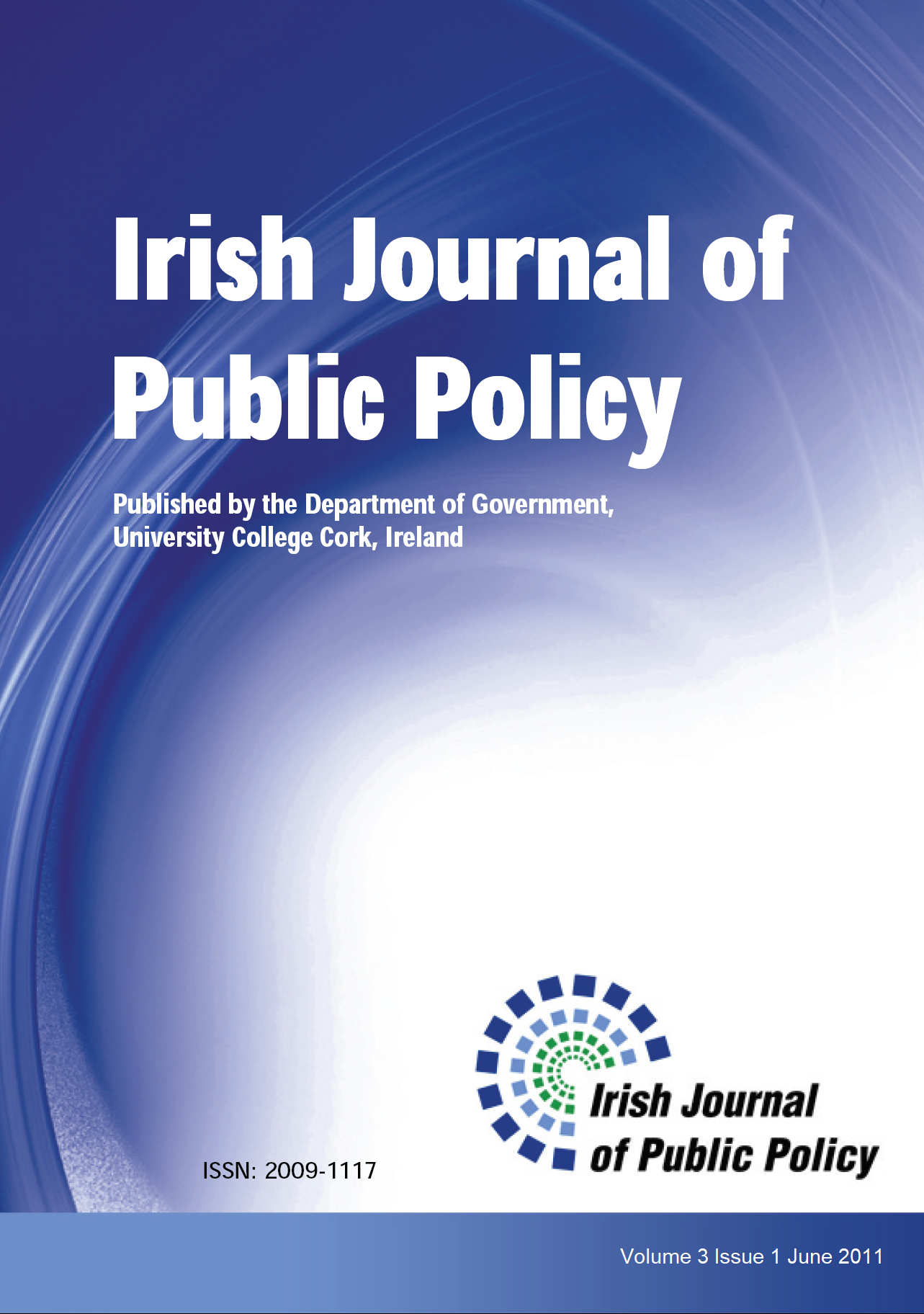Assessing the merits of deliberative processes in engaging and informing citizens: a case study of a deliberative event on Irish women’s voices on Europe
DOI:
https://doi.org/10.33178/ijpp.3.1.5Abstract
Deliberative democratic innovations can provide answers to some of the perennial problems of democratic theory, such as informing and educating the public, creating opportunities for citizens to shape policy and the restoration of citizen trust and engagement. The challenges of informing and educating the public and restoring citizen trust and engagement have been evident in Ireland’s difficulties in successfully ratifying the Nice and Lisbon treaties. Academic research has shown that, after the farming community, Irish women have benefitted most from EU membership. Yet it also shows that Irish women are more likely than their male counterparts to reject EU treaties. With this in mind a one-day public consultative conference on Irish women’s voices in Europe was held in University College Cork, one month before the second referendum on the Lisbon Treaty. Bringing academic and community perspectives together it assessed how Irish women have benefitted from EU membership and their concerns on the possible impact of the EU on issues of Irish neutrality and family/ethical matters. Tools such as consultative polls and expert-informed workshops were used to inform, educate and gather opinions and recommendations. This paper critically evaluates the deliberative processes and outcomes of this conference, examining survey data gathered from participants and analysing the content of the workshop deliberations.References
Bachtiger, A., S. Niemeyer, M. Neblo, M.R Steenbergen, and J. Steiner (2010), ‘Disentangling Diversity in Deliberative Democracy: Competing Theories, Their Blind Spots and Complementarities’. The Journal of Political Philosophy 18(1), pp.32-63.
Cohen, J. (2007), ‘Deliberative Democracy’, in S.W. Rosenberg (ed.) Deliberation, participation and democracy, can the people govern?, Basingstoke: Palgrave MacMillan, pp.219-236.
Dryzek, J.S. (2010), ‘Rhetoric in Democracy; a systemic appreciation’, Political Theory 38 (30), pp.319-339.
Dryzek, J.S. and S.J. Niemeyer (2008), ‘Reconciling pluralism and consensus as political ideals’, American Journal of Political Science 50 (3), pp.634-649.
Dryzek, J.S. (2007), ‘Theory, Evidence and the Tasks of Deliberation’, in S.W. Rosenberg (ed.) Deliberation, participation and democracy, can the people govern?, Basingstoke: Palgrave MacMillan, pp.236-250.
Dryzek, J.S.(1990) Discursive Democracy: Politics, Policy and Science, Cambridge: Cambridge University Press.
Fishkin, J. (1991), Democracy and Deliberation: New Directions for Democratic Reform, New Haven: Yale University Press.
Gutmann, A. and D.Thompson (2004), Why Deliberative Democracy, Princeton and Oxford: Princeton University Press.
Held, D. (2006), Models of Democracy, Cambridge: Polity Press.
Hendricks, C.M. (2006), ‘Integrating Deliberation: Reconciling Civil Society’s Dual Role in a Deliberative Democracy’, Political Studies 54 (3), pp. 486-508.
Laffan, B. and J.O’Mahony (2009), Ireland and the European Union, Basingtoke: Palgrave MacMillan.
Mansbridge, J. with J. Bohman, S. Chambers, D. Estlund, A. Follesdal, A. Fung, C. Lafont, B. Manin, and J.L. Marti (2010), ‘The place of self-interest and the role of power in deliberative democracy’, The Journal of Political Philosophy 18(1), pp. 64-100.
Offe, C. and U.K.Preuss (1991), ‘Democracy institutions and moral resources’ in Held, D (ed.) Political Theory Today. Cambridge: Polity, pp. 143-171.
Sinnott, R, J.A. Elnik, K. O’Rourke, and J. McBride (2009), Attitudes and behaviour in the Referendum on the Treaty of Lisbon. Report prepared for the Department of Foreign Affairs, Dublin: UCD Geary Institute.
Steiner, J. (2010), Review Perspectives on Politics, 8 (3), pp.916-918.
Tully, J (2002), ‘The unfreedom of movements in comparison to their ideals of constitutional democracy’, Modern Law Review, 65(2), pp.204-228.
Young, I.M. (2000), Inclusion and Democracy, New York: Oxford University Press.
Downloads
Published
Issue
Section
License
Copyright (c) 2011 the author(s)

This work is licensed under a Creative Commons Attribution-NonCommercial-NoDerivatives 4.0 International License.



